Arthur Miller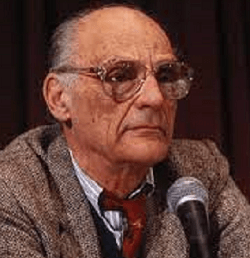
In the American theatre of the 20th century, Arthur Asher Miller was a playwright, essayist, and screenwriter from the United States. His most well-known plays are All My Sons (1949), Death of a Salesman (1949), The Crucible (1953), A View from the Bridge (1955), and The Crucible (1947). He produced several screenplays, but The Misfits (1961) was his most well-known. The drama Death of a Salesman is regarded as one of the greatest American plays of the 20th century. Miller regularly appeared in the media, particularly in the late 1940s, early 1950s, and early 1960s. He married Marilyn Monroe during this time, won the Pulitzer Prize for Drama, and stood before the House Un-American Activities Committee. He received the St. Louis Literary Award from the Saint Louis University Library in 1980. He received the Dorothy and Lillian Gish Award in 1999, the Jerusalem Prize in 2003, the Prince of Asturias Award in 2002, and the Premium Imperiale award in 2001. Early YearsOn October 17, 1915, in Harlem, the Polish immigrant couple Isidore and Augusta gave birth to Arthur Miller. The family was wealthy since Miller's father created a prosperous clothing store after immigrating to America; unfortunately, their prosperity was cut short by the 1929 Wall Street Crash. In 1929, the Miller family was forced to relocate to Brooklyn due to financial difficulties. In 1933, Miller completed his high school education in New York. He studied journalism at the university, rose to the position of night editor at the Michigan Daily, and started dabbling in theatre. Both Cornell University and the University of Michigan rejected his application for admission. Before being admitted to the University of Michigan, Miller held several odd occupations, including presenting a radio show. In addition to running a radio show, Miller had several occupations in his early career. Miller wrote the script for the Federal Theatre in 1939 after graduating from the University of Michigan. Writers, performers, directors, and designers who were unemployed may find work at the Federal Theatre. Late in 1939, Congress decided to close the Federal Theatre. Miller passed away from heart failure on February 10, 2005. Age-wise, he was 89. MarriageMiller married Marilyn Monroe in June 1956 after divorcing Mary Slattery, whom he had married in 1940. They first connected in 1951, had a temporary relationship, and kept in touch. Monroe, who was 30 then, was eager to start a family with her new husband because she had never had a true family. Monroe started to think twice about her profession and how helpless she felt attempting to handle it. She acknowledged it to Miller "Hollywood offends me, and I'm no longer interested in it. I want to be there for you when you need me, living quietly in the country. I've lost the ability to defend myself." 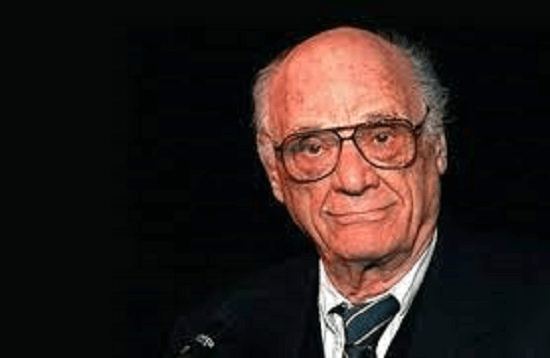
According to writer Jeffrey Meyers, Monroe converted to Judaism to "show her devotion and get near to both Miller and his parents." She confided in Susan Strasberg, a close friend: "I can relate to the Jewish people. No matter whatever they do, like me, everyone is constantly trying to get them." Monroe's life has become more typical after she was far from Hollywood and the celebrity lifestyle; she started cooking, taking care of the house, and showing Miller more love and attention than he was used to. Later that year, Monroe accompanied Miller when the HUAC summoned him. The Misfits in 1960, a movie starring Monroe and directed by John Huston, has a script by Miller that she started writing. Monroe arrived on the set late and struggled to recall her lines since she was taking medicines to help her fall asleep and more drugs to assist her wake up. Miller and Monroe's relationship had some issues while filming, and he subsequently admitted that it was one of his lowest times. Miller and Monroe were experiencing personal issues, but Huston was unaware of it. He subsequently remembered, "I was bold enough to tell Arthur that allowing her to use any narcotic was wrong and completely negligent. I soon recognized that she wouldn't pay Arthur any attention and that he had no control over her behaviour." Miller and Monroe divorced in 1961, just before the movie's debut, following five years of marriage. Monroe passed away on August 5, 1962, perhaps from a heroin overdose, 19 months later. Huston, who had witnessed her rise to fame and had also directed her in her first significant role in The Asphalt Jungle in 1950, attributed her death to her doctors rather than the pressures of being a celebrity: "The doctors, for crying out loud, made the girl a sleeping pill addict. Nothing about the Hollywood setup applied to it." Miller wed Inge Morath, a photographer who had laboured to capture the making of The Misfits, in February 1962. They had their first child, Rebecca, on September 15, 1962. Daniel, their son, was born in November 1966 and had Down syndrome. Miller placed him in an institution against the desires of his wife, first in a New York City baby home and subsequently at the Southbury Training School in Connecticut. Till Inge's passing in 2002, Miller and Inge stayed partners. Actor Daniel Day-Lewis, Miller's son-in-law, is rumoured to have contacted Daniel frequently and convinced Miller to visit him. Morath visited Daniel often, but Miller never saw him at school and hardly ever mentioned him. CareerMiller's lengthy writing career has spanned more than 60 years. During this time, Miller has produced 26 plays, the book Focus (1945), various trip diaries, I Don't Need You Anymore (1967), a collection of short tales and the autobiography Time Bends A Life (1987). Miller's plays typically deal with social concerns and are centred on a person caught up in a social problem or at the whim of society. 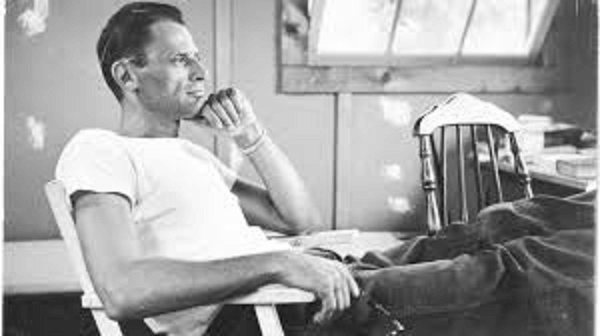
In 1936, Miller's debut play, No Villain, which centres on a character facing ruin due to a strike, explored Marxist philosophy and internal turmoil. Honours at Dawn, from 1937, similarly features a strike and conflicting economic viewpoints, but it concentrates on one person's incapacity to communicate. The Great Disobedience, published in 1938, compares capitalism and the jail system. 1940's The Golden Years details Cortes' devastation of Mexico and the impact of capitalism and destiny on the individual. In 1941, Miller wrote two radio plays: William Ireland's Confession and The Pussycat and the Expert Plumber Who Was a Man. The Four Freedoms, Miller's third radio drama, was broadcast in 1942. A character in the 1944 film The Man Who Had All the Luck feels powerless over his life and is the victim of chance. The 1947 film All My Sons examines how choices made in the past affect a person's present and future. The 1949 film Death of a Salesman explores identity loss and a man's resistance to change in his life and society. The Crucible, from 1953, reenacts the Salem witch trials while emphasizing paranoid hysteria and the battle of the individual to uphold their principles. Three people's criminal experiences are described in A View from the Bridge, published in 1955. The 1964 film After the Fall emphasizes deceit as a characteristic of humanity. The 1964 incident in Vichy exposes a person's battle with guilt and accountability. The Price, from 1968, depicts the tale of a person who must balance their right to choose with their obligation to take responsibility. A great playwright is approached but is not recognized in the 1970 film Fame. While Elegy for Lady (1982) deals with death and its repercussions on relationships, The American Clock (1980) concentrates on the Depression and its consequences on the person. The 1982 film Some Love Story is focused on society and the toxic nature of justice. The 1991 film The Ride Down Mountain Morgan is about a man who thinks he can have anything he desires. The 1993 film The Last Yankee examines how people's wants change over time and how this can cause conflict in marriages. In the 1994 film Broken Glass, people use denial to numb their grief. The script for the 1996 film adaptation of The Crucible was written by Miller. 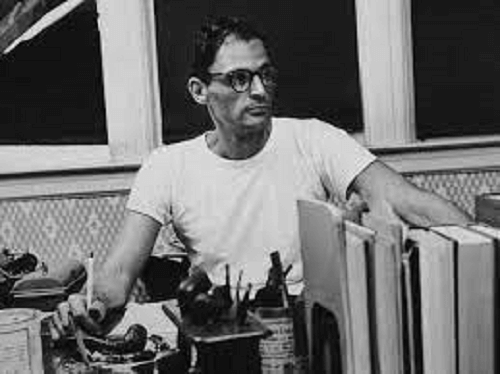
Miller has garnered a lot of accolades and trophies during his career. Miller has received numerous honours, including the National Institute of Arts and Letters Gold Medal for Drama in 1959, the 1949 Pulitzer Prize, the 1949 New York Drama Critics Circle Award, the 1936 and 1937 Michigan Avery Hopwood Awards, the 1937 Theatre Guild Bureau of New Plays Award, the Antoinette Perry and Donaldson Awards, and the 1949 Pulitzer Prize. In 1965, Miller was also chosen to lead PEN (Poets, Essayists, and Novelists). LegacyOne of the greatest dramatists of the 20th century at the time of his death, Miller had a writing career that lasted over seven decades. Many reputable actors, directors, and producers expressed gratitude to him after his passing, with some dubbing him the final great actor on the American stage. Broadway theatres also turned off their lights as a sign of respect. The Arthur Miller Theatre was inaugurated in March 2007 by Miller's Alma institution, the University of Michigan. He requested that it be the only theatre in the nation to bear his name. Miller's correspondence, notes, sketches, and other papers are kept at the Harry Ransom Humanities Research Center at the University of Texas at Austin. Miller also belongs to the American Theater Hall of Fame, inducted in 1979. He was given the Four Freedoms Award for Speaking Freely in 1993. Arthur Miller: Writer, a documentary on her father's life, was finished in 2017 by Rebecca Miller, an author and filmmaker. Literary and public criticismChristopher Bigsby wrote Arthur Miller: The Definitive Biography based on the boxes of documents Miller made available to him before his death in 2005. The book, released in November 2008, allegedly contains previously unrevealed writings in which Miller "bitterly attacked the evils of American racism years before the civil rights movement picked it up." Using the pen name Matt Wayne and editing a theatre column in the magazine The New Masses, author Alan M. Wald speculates that Miller was "a member of a writer's section of the Communist Party circa 1946" in his book Trinity of Passion. 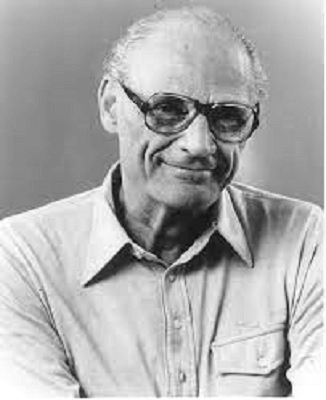
Miller came under fire from author Christopher Hitchens in 1999 for drawing parallels between the Monica Lewinsky probe and the Salem witch trials. Lewinsky's garment was examined for physical evidence, like how women's bodies were examined in Salem for the "Devil's Marks," according to Miller. Hitchens vehemently refuted the analogy. Despite left-wing intellectual, Hitchens bitterly lamented that Miller had abandoned author Salman Rushdie during the Iranian fatwa regarding The Satanic Verses in his autobiography, Hitch-22. DeathMiller passed away at his home in Roxbury, Connecticut, on the night of February 10, 2005, the 56th celebration of the Broadway premiere of Death of a Salesman, from bladder cancer and heart failure. He was 89 years old. Since being discharged from the hospital the previous month, he received healthcare at his sister's apartment in New York. He had Barley family and friends all around him. His remains were buried in Roxbury Center Cemetery.
Next TopicErik Erikson
|
 For Videos Join Our Youtube Channel: Join Now
For Videos Join Our Youtube Channel: Join Now
Feedback
- Send your Feedback to [email protected]
Help Others, Please Share










